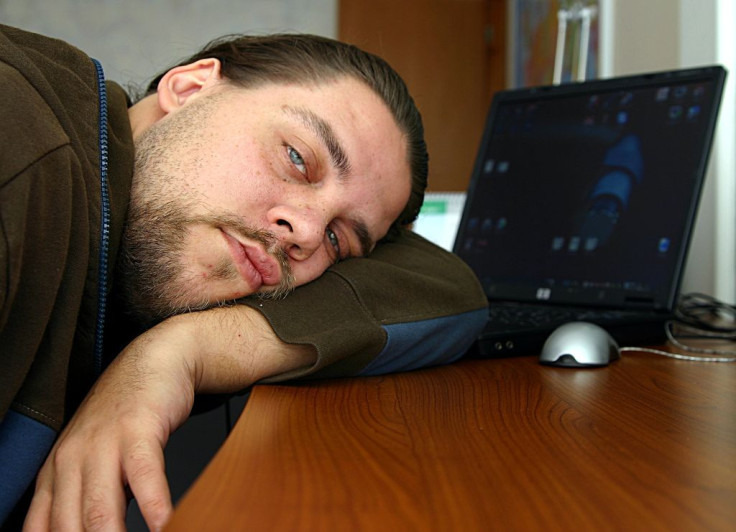Without Paid Sick Leave, US Workers Avoid Medical Care And Face Serious Health Consequences

Getting sick, whether from a cold or from cancer, is a natural part of life. But illness can become even more stressful if an employee is unable to take paid sick leave.
Some 145 countries require paid sick leave, including Australia, France, Sweden, and the UK. In Germany, employers must provide at least six weeks of sick leave per illness. The United States is not included in that list, as federal law doesn’t require employers to provide workers and their families with paid sick leave. Only Connecticut, California, Massachusetts, and Oregon have laws that offer paid sick leave to employees.
In a new study, researchers from Florida Atlantic University (FAU) and Cleveland State University examined the influence of paid sick leave over U.S. workers, and their families, who recieve medical care. They found that families of workers without paid sick leave were three times as likely to delay medical care and 1.6 times more likely to completely forego medical care for an injury or illness than people who had paid sick leave. The group that was particularly at risk of skipping medical care were the lowest-income workers, making them more likely to suffer from untreated issues.
“Paid sick leave is an important employer-provided benefit that helps workers and their dependents receive prompt preventive or acute medical care, recuperate from illness faster, and avert more serious illness,” said LeaAnne DeRigne, lead author of the study and associate professor in the School of Social Work at FAU, in a press release. “Results from our study contradict public health goals to reduce the spread of illness, and policymakers should consider the potential public health implications of their decisions when contemplating guaranteed sick leave benefits.”
Using data from the 2013 National Health Interview Survey, the researchers examined data from 18,655 working adults between the ages of 18 and 64. Out of the total, 10,586 people had paid sick leave benefits, and 7,879 didn’t. The researchers adjusted for income, age, race, occupation, full-time or part-time work status, and health insurance coverage. Regardless of any of these factors, workers who didn’t have paid sick leave were still three times more likely to delay medical care or avoid it completely.
DeRigne and her research team argue that paid sick leave eases the stress of caring for an illness, especially if it’s a chronic illness like type 2 diabetes or cancer. In a 2015 study, researchers found that 45 percent of stage III colorectal cancer patients were not able to keep their jobs during treatment, largely due to a lack of paid sick leave. This put more pressure on them financially, as losing as job during treatment can be devastating.
It’s also quite possible that a lack of paid sick leave could lead to a vicious cycle of stress, financial burden, and continuously evading treatment for illnesses. Workers who are more vulnerable to getting sick would be more likely to skip work days or be less productive at work, ultimately hurting employers. And job stress can lead to more mental health issues and sick days. “Workers who come to work when ill are also more prone to injuries and mistakes; therefore, offering paid sick leave may make good business sense,” said Patricia Stoddard-Dare, an author of the study and associate professor of social work at Cleveland State, in the press release.
In addition, paid sick leave makes it easier for employees to take some time off work when they’re ill with an infectious disease like the flu, which can easily spread to others in the workplace. A 2013 study found that paid sick leave could decrease the spread of flu in the workplace by 40 percent.
“The personal health care consequences of delaying or forgoing needed medical care can lead to more complicated and expensive health conditions,” DeRigne said. “U.S. workers with paid sick leave are more likely to take time off work to care for themselves or for family when needed. More importantly, it enables workers to 'self-quarantine’ when necessary, without the worries of losing their job or income while also not spreading illness to others. This is especially important for food service, health care and child care industries where the spread of illness can have large public health impacts.”
Source: DeRigne L, Stoddard-Dare P, et al. Health Affairs, 2016.



























